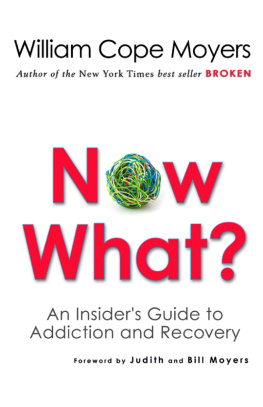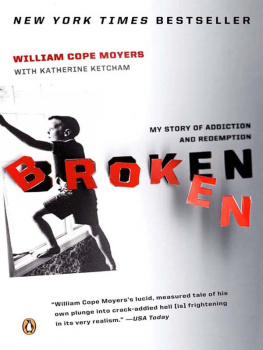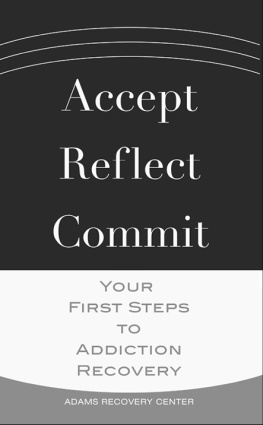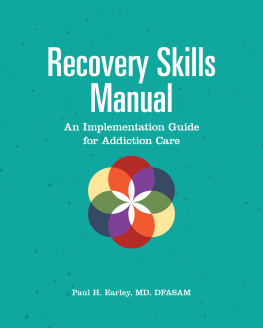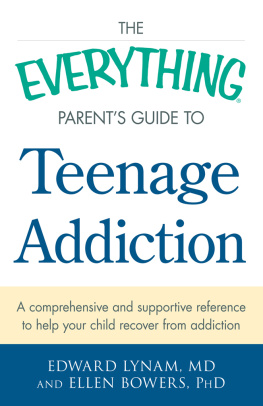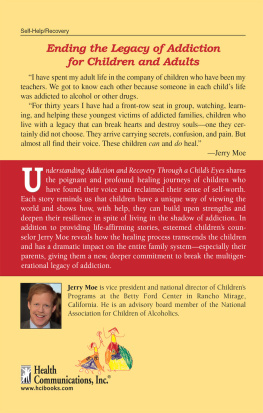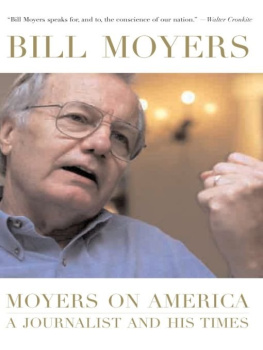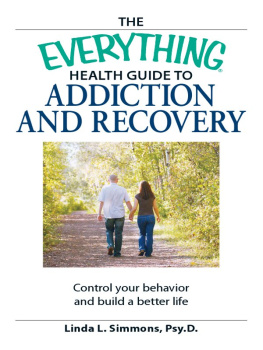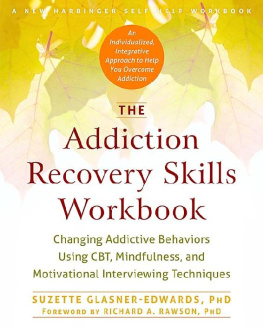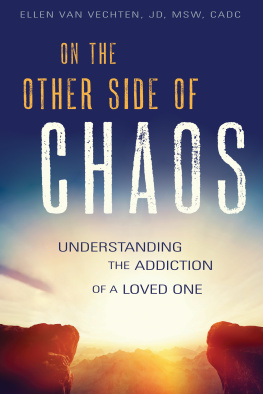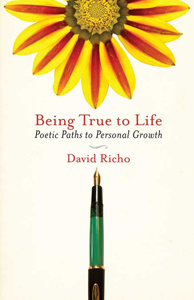Now
What?
An Insiders Guide to
Addiction and Recovery
William Cope Moyers

Hazelden Publishing
Center City, Minnesota 55012
800-328-9000
hazelden.org/bookstore
2012 by William Cope Moyers
All rights reserved. Electronic edition published 2012.
Printed in the United States of America
No part of this electronic publication, or its printed work, may be reproduced in any form or my any means without the written permission of the publisher. Failure to comply with these terms may expose you to legal action and damages for copyright infringement.
Library of Congress Cataloging-in-Publication Data
Moyers, William Cope.
Now what?: an insiders guide to addiction and recovery / William Cope Moyers.
p. cm.
ISBN 978-1-61649-419-3 (softcover) ISBN 978-1-61649-452-0 (e-book)
1. AddictsRehabilitation. 2. Substance abuseTreatment. I. Title.
HV4998.M693 2012
616.86dc23
2012027417
Editors note
The names, details, and circumstances may have been changed to protect the privacy of those mentioned in this publication.
This publication is not intended as a substitute for the advice of health care professionals.
Alcoholics Anonymous, AA, and the Big Book are registered trademarks of Alcoholics Anonymous World Services, Inc.
16 15 14 13 12 1 2 3 4 5 6
Cover design by David Spohn
Interior design and typesetting by Madeline Berglund
To people ready to change ,
and those ready to help them
ACKNOWLEDGMENTS

I n a book like this, it is impossible to give credit to each individual who has influenced me and what Ive written. The Now what? asked by so many comes my way via letters, e-mails, and phone calls from people I have never met and never will. Their personal experiences are the essence of my perspective, as is the professional knowledge of researchers, scientists, and counselors whove been at it a lot longer than I have. Then theres the wisdom that Ive liberally borrowed from my fellow travelers in long-term recovery and from those who are counting days since their last buzz. There is very little, if any, of my own original thought here. To all of these people goes the credit.
But I owe special thanks to my colleagues at Hazelden, especially Sid Farrar, the editor who pushed me to do this book. Publisher Nick Motu (who wears many hats) supported it from start to finish. And then theres Mark Mishek, the CEO. He is uniquely adroit at balancing the mission and the margin of a burgeoning organization that employs people like me and endorses books like this one. That I get to work at Hazelden is a gift beyond anything I was promised when I was a patient there so long ago.
Without Pat Samples this book would just be a good idea whose time hadnt come. Thanks, Pat, for pulling me out of my own head and getting my ideas framed into a coherent structure on a computer screen and, ultimately, on these pages. Every writer deserves an editorial consultant like you.
On her own time, Kat Joachim, my assistant at Hazelden, categorized my materialsletters, e-mails, and columnsinto themes for my research.
Dr. Omar Manejwala knows addiction medicine inside and out. He made himself available at every moment I had a question demanding an immediate answer.
My agent, Amy Williams, knows the art of the deal and the deal in the art of my recovery advocacy, which is so vital to my professional duties and personal passion. She made sure this book satisfies both.
In 2007, Rick Newcombe at Creators Syndicate prompted me to start writing a weekly column on addiction-related issues. With his support, Im still doing it. These hundreds of columns continue to elicit readers questions, and many of my answers to them ended up in this book.
Thank you, Brad Martin, for allowing me to write a key chapter or two at your nurturing home at Blackberry Farm in Tennessee. I should write more books more often there.
When I doubted my staying power to move through these chapters while keeping pace with the rest of my life, Nell Hurley stuck with me and cheered me on. She still does, whether I waver or not.
My parents have been with me every step of the way and still are. Im a fortunate son.
Thomas, Nancy, and Henry, my three children, encourage their father to be a writer too, even when it happens at home at my desk at night and on weekends. Their support is priceless. I relish their unrelenting love. Im a blessed father.
FOREWORD

O ur son says he dedicated his first book, Broken , to his parents because we were with him every step of the way.
Ha!
He was too drunk and drugged to see how many times his father, in particular, stumbled. It seemed to me that every other time I put my foot down, I stumbled.
Or fell into quicksand.
I was ignorant, and even in the light, ignorance trips you up. When a giant hole opened in our lives, and he tumbled headfirst toward the bottom, we were sucked down with him. And in the darkness, ignorance almost devoured me.
What did I know about addiction? I was in my fifties and had never indulged in a joint (Im seventy-eight now and still the oldest square on the block).
And alcoholism? I knew my grandfather died a drunk. And I had an uncle whose drinking made him such a malcontent that after he struck my father in a woozy state of belligerence, I had him arrested. But every town in East Texas had a handful like him, and the good folk passing just shook their heads and said, What a shame.
I thought of alcoholism as too many drinks, not as a disease. I thought it was for other peoples kin.
Our son, an alcoholic and addict? Disappearing at age thirtywithout a word to his wife, not even a note to his parents, a tip-off to his brother and sister, a call to his boss? It couldnt be.
But it was. And we fell through the gates of hell and were swallowed up.
I do not exaggerate. Thats how I remember it all these years later: swallowed up in frantic searches, detox, primary care, halfway houses, reassurances, consultations, lies, relapses, tears, sleepless nights, spasms of anger, pangs of fear, hallucinations, dreams of a lifeless body sprawled on a crack house floor. I hated what he was doing to himself. Hated what he was doing to us. Onceno, twice, or was it three times?I screamed aloud, alone in my car, E-n-o-u-g-h! Im giving up!
But he didnt give uphow could I? He hung in there, clawed his way back from the bottom, prayed, confessed, read, listened, learned, plumbed the depths of his soul, found fresh pools of courage, gained discipline, garnered wisdom, and grounded his recovery in sharing his story, unashamedly, with others.
And one day he was back. A leader in the field. An inspiration to others. A father to his children. A stalwart in his community. And the embodiment of a journey with no end and no destination and measured one day at a time.
Yes, I stumbled and fell and, at times on my knees, I was uncertain I could get up. But in the midst of his own struggle, he reached out for helpto his wife, friends, fellow travelers on the road back, kindred spirits, and yes, to his parentsand recovery became more than a solo flight; it became a mutual affair.
You will find the reasons in this book. You will see what can be learned from other parents experiencing a hell of their own and seeking the road back. I will never forget the first day at the family program when he was in treatment and a family of five from a Southern citythe father a successful banker and leader in the communitytrooped in like bedraggled creatures who had been caught in a rainstorm: their oldest child had just arrived in treatment, too, and they were just as bewildered as I was. I never felt alone after that and slowly came to see addiction as a disease from which no family is immune.

